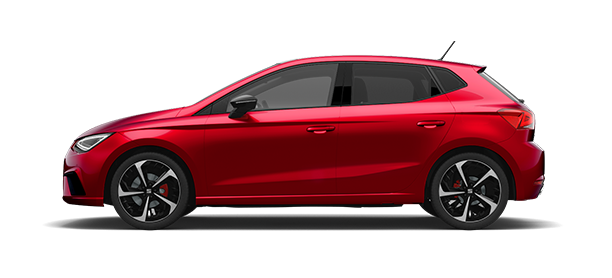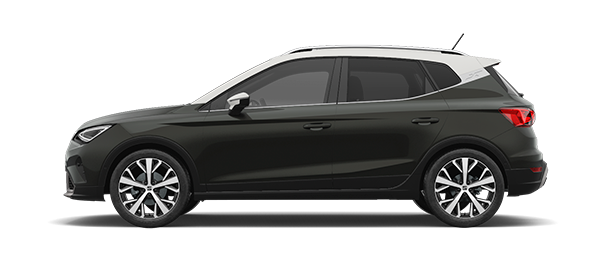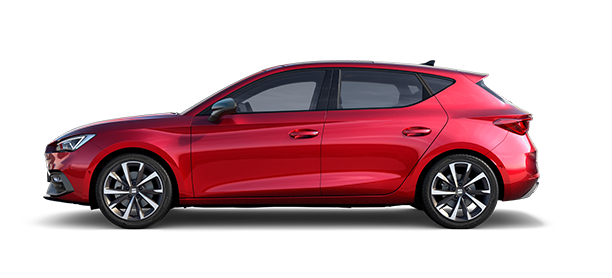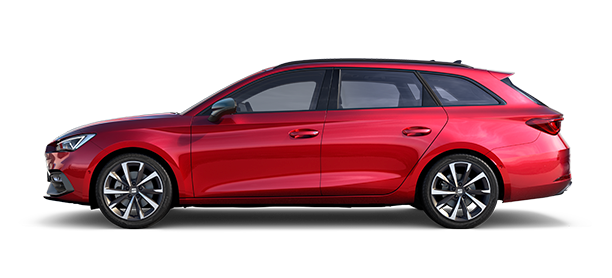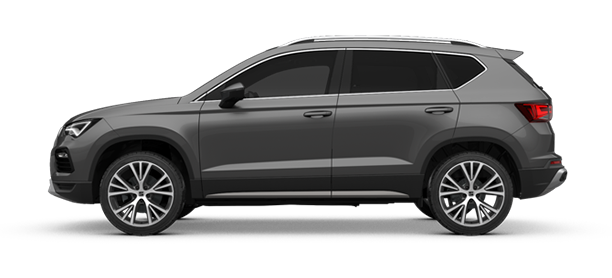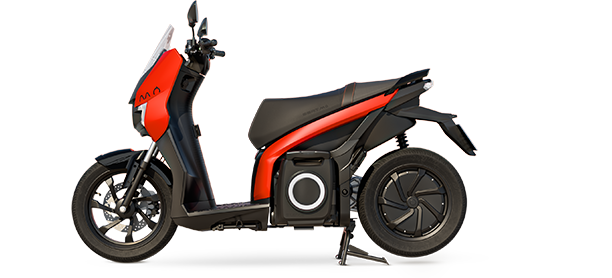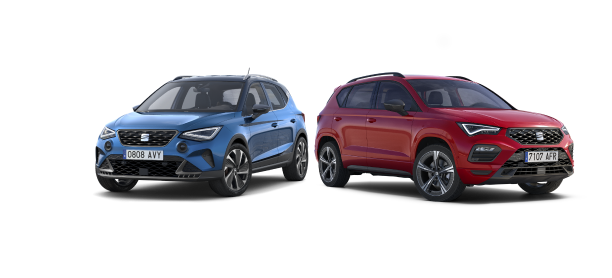SEAT cars engines: Diesel, petrol and gas.
The engines of our SEAT models offer an extraordinary performance and a stable and smooth driving experience. Our cars are known for providing a powerful and reliable ride thanks to direct injection and turbocharging with TSI and TDI engines, as well as for taking care of the environment with engines such as the new TGI engines, characterized by low pollution, low emissions, and low fuel consumption.
Petrol engines
At SEAT, we offer petrol cars, also known as gasoline: the TSI and a hybrid version that combines this fuel with compressed natural gas (CNG)
TSI: Turbo Stratified
TSI is our pioneering technology for petrol engines. TSI engines are compact, high-powered and use less fuel. TSI technology blends the best of our TDI diesel and FSI (fuel stratified direct injection) petrol engines to give you excellent driveability and outstanding fuel economy.
Acceleration is instant, so overtaking is safer and you can power smoothly up hills with no delay. By adding a turbocharger and a supercharger to the fuel-injected engine (hence TSI), we have developed an engine with small car fuel economy and emissions, but the power of something much bigger.
Which cars have a TSI engine?
- SEAT Ateca: We have three types of gasoline engines, the 1.0 EcoTSI with 85 kW (115 hp), with a combined fuel consumption of 5.4 l/100 km, combined CO2 emissions: 122 g/km; the 1.5 EcoTSI with 110 kW (150 hp), with a range of combined fuel consumption that goes from 5.5 to 5.7 l/100 km, combined CO2 emissions from 126 to 135 g/km. You can also buy a petrol SEAT Ateca with this engine: 2.0 EcoTSI with 140 kW (190hp).
- SEAT Ibiza: We have two types of gasoline engines, the 1.0 EcoTSI with 70 kW (95 hp), with a combined fuel consumption 4.6 l/100 km, combined CO2 emissions: 105 g/km; and the SEAT Ibiza 1.0 EcoTSI with 81 kW (110 hp) combined fuel consumption X.X l/100 km, combined CO2 emissions: XXX g/km.
- SEAT Arona: We have three types of petrol engines: the 1.0 EcoTSI with 70kW (95hp) with a range of combined fuel consumption that goes from 5.0 to 5.2 l/100 km, combined CO2 emissions that go from: 115 to 118 g/km; the 1.0 EcoTSI with 81kW (115hp) with a range of combined fuel consumption that goes from 5.0 to 5.1 l/100 km, combined CO2 emissions that go from: 112 to 117 g/km; and the 1.5 EcoTSI with 110 kW (150 hp), with a range of combined fuel consumption that goes from 5.6 to 6.3 l/100 km, combined CO2 emissions that go from: 112 to 114 g/km.
- SEAT Leon: we have three types of gasoline engines: Starting from the 1.0TSI with power options ranging from 66kW (90hp) with a combined fuel consumption of 4.5-4.6 l/100km, emissions of 104-106 g/km, to 81kW (110hp), with a combined consumption of 4.6-4.8 l/km and emissions of 105 g/km to 109 g/km; the 1.5 EcoTSI engine, which comes with power options ranging from 96kW (130hp) to 110kW (150hp), with a combined fuel consumption ranging from 4.8 to 5.0 l/100km and emissions ranging from 109 g/km, to 115 g/km; and finally the SEAT Leon 2.0 EcoTSI engine that generates 140kW (190hp) of power.
- SEAT Leon Sportstourer: SEAT Leon Sportstourer: we have three types of gasoline engines. Starting from the 1.0TSI with power options ranging from 66kW (90hp) with a combined fuel consumption of 4.6-4.7 l/100km, emissions from 106-108 g/km. Then the 1.5 Eco TSI engine comes with power options ranging from 96 kW (130hp) to 110 kW (150hp), with a combined fuel consumption ranging from 4.8 to 4.9 l/100 km and emissions ranging from 109 g/km to 112 g/km. Finally, the SEAT Leon Sportstourer 2.0 EcoTSI engine that generates 140kW (190hp) of power.
Hybrid cars: TGI with CNG and petrol
The TGI cars by SEAT combine petrol and compressed natural gas (CNG), saving up to 30% compared to a petrol engine only.
Advantages of a TGI car:
- Using these two types of fuels, we reduce CO2 emissions and improve the air quality and environment.
- The price to fill in the CNG tank is much lower than when refuelling with any other fuel, which overall helps the driver reduce costs.
- In cities where the pollution levels are high, you will be able to drive through the streets with the minimum environmental impact.
Which cars combine CNG and petrol?
- SEAT Ibiza TGI: We have one hybrid engine, the 1.0 TGI 66kW MQ (90HP) with a combined fuel consumption 5.0 l/100 km, combined CO2 emissions 114 g/km.
- SEAT Leon TGI: with 96kw (130hp), it can drive up to 1.360 km using this hybrid combination.
- SEAT Arona TGI: we have one engine with gasoline and gas, the 1.0 TGI 66 kW MQ (90HP).
SEAT diesel cars: TDI
Our diesel cars are more advanced and improved than ever, with the TDI technology, which stands for Turbo Diesel Injection.
The TDI badge characterises SEAT diesel engines featuring direct injection and turbocharging. Characteristic features of SEAT’s TDI technology are the economical fuel consumption, low emissions, high pulling power (torque) and outstanding performance for more driving pleasure.
Which are the TDI cars from SEAT?
- SEAT Ateca: We have three types of diesel engines, the 1.6 TDI with 85 kW (115 hp) with a range of combined fuel consumption that goes from 4.6 to 4.9 l/100 km and combined CO2 emissions that go from: 120 to 128 g/km; 2.0 TDI with 110 kW (150 hp) with a range of combined CO2 emissions that goes from 123 to 135 g/km; and 2.0 TDI 140 kW (190 hp), with combined CO2 emissions of 139 g/km.
- SEAT Ibiza: We have two different types of diesel engines, the 1.6 TDI with 59 kW (80 hp) with a combined fuel consumption of 3.8 l/100 km, combined CO2 emissions of 100 g/km;and the 1.6 TDI with 85 kW (115 hp), with a combined fuel consumption of 4.1 l/100 km and combined CO2 emissions of 111 g/km.
- SEAT Arona: We have two different types of diesel engines, the 1.6 TDI with 70 kW (95 hp), with a range of combined fuel consumption that goes from 4.3 to 4.5 l/100 km, combined CO2 emissions that goes from 113 to 118 g/km; and the SEAT Arona 1.6 TDI with 85 kW (115 hp), with a range of combined fuel consumption that goes from 4.3 to 4.4 l/100 km, combined CO2 emissions that go from 114 to 117 g/km.
- SEAT Leon: we have two diesel engines. The 2.0 TDI that offers 85kW (115hp) with a combined fuel consumption of 3.4-3.5l/km and combined C02 emissions of 89-92g/km. And also the 2.0 TDI engine that produces 110kW (150hp) and has a combined consumption of 3.6-3.8l/100km and combined CO2 emissions of 95-98g/km.
- SEAT Leon Sportstourer: we offer two different diesel engines. The 2.0 TDI that offers 85kW (115hp) of power and the 2.0 TDI that produces 110kW (150hp) and has a combined consumption of 3.6-3.8l/100km and combined CO2 emissions of 95-98g/km.
Start & Stop System
In addition, many engines are equipped with the innovative automatic start & stop system, which shuts the engine down at standstill to save fuel. Many also use the brake energy recovery systems to reduce fuel consumption without sacrificing vehicle dynamics, which is the case of the Ibiza.





